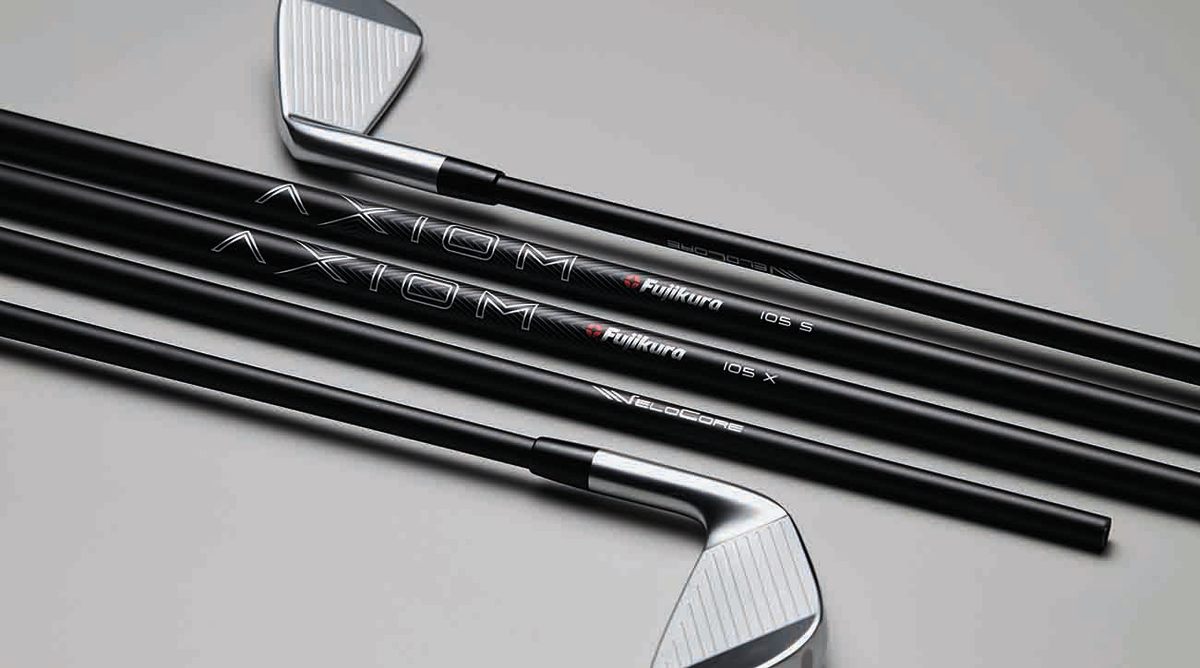Composite Shafts in Irons? Yes, That Can Be a Thing

For all the evolution in golf equipment in recent years (seen any 1-irons or metal spikes lately?), one truism has largely still remained.
Graphite and composite shafts are for drivers and other metal woods. Steel shafts are for irons. Vice Versa? Not so much, with the adage being that the greater weight of steel shaft reduces torque (twisting) and therefore delivers better control and accuracy in the clubs that demand it the most. Steel is also less expensive, no small detail given that most players’ bags have two or three times as many irons and wedges as woods.
But Fujikura Golf, makers of the Ventus metalwood shafts that have been wildly popular on pro tours and its best-selling shaft model overall, is moving composite-shaft technology into the iron space with a new shaft called Axiom.

“We’re happy to put our foot forward in that category,” says Spencer Reynolds, product expert for Fujikura. “We heard it from consumers: ‘When can I get a Ventus iron?’”
After a couple years of research, the company figured out a way to optimize its proprietary VeloCore technology from Ventus shafts, providing increased ball speeds, maximum stability and distance control into iron-length shafts.
That combination in Axiom comes in three weight categories: 75 grams (in R2, regular and stiff flexes, 105 grams (stiff and x-stiff) and 125 grams (x-stiff). The heaviest weight will likely appeal to better players.
The weight is kept constant throughout a set with an innovative 3-parallel shaft length system—long irons (2- to 4-irons), mid (5-7) and short (8-pitching wedge)—that also alleviates the need for extensive shaft tipping, which in turn maintains consistency and feel. (And also makes life easier for club builders.)
The look is also consistent, a matte black that says “this isn’t steel” but doesn’t hide its composite identity. There’s strategy that goes in that, too.
“There are colors in driver shafts, but people might not want to look at that eight times in their golf bag (in irons),” Reynolds says. “This is a very clean look at address.”
Axiom shafts are premium products and priced accordingly, at $105-$125 per shaft. Fujikura thinks the innovation matches the MSRP.
“It’s not something we’re shying away from,” Reynolds says. “We believe the performance and overall value is in line with the price.”
